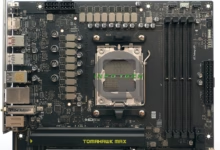
If you grew up helping your mother or father in the garden, you may be ready to see if you have a green thumb, too. Whether you are doing it for the joy of being outdoors or to save a little money over the summer, here are some ideas on starting your first vegetable garden.
Where To Plant
Before you can plant anything, you need to figure out where you are going to plant it. Do you have a corner of the yard you want to turn into a garden or are you going to go with a raised box garden? Whatever you decide, you need to make sure it is a sunny location. Most vegetables are sun worshipers and will grow best if they have enough light. Some herbs do well in areas that have more shade, so knowing your location will help you decide what to plant.
What To Grow
Don’t go crazy with planting your first year. Instead, choose a few types of vegetables and learn how to do well with them. Over time, as your garden size increases, you can increase the number of different veggies you plant. You can plant early season plants like peas and then plant the hot-weather types, such as tomatoes in the same spot after your spring harvest. This can help your garden stay busy through the spring and summer.
How Often To Water
You may be tempted to turn a sprinkler on the new plants multiple times per day, but that may be counterproductive. Experts say it is best to use a drip line or soaker hose so you can water more slowly and better control the amount of water distributed. The very early plants need more water than established plants, so you will need to be aware of when to make changes to your watering routine.
When To Use Fertilizer
Using a good fertilizer can be an important step to keeping your vegetables healthy and strong. Use a fertilizer that has been premixed with a ribbon mixer so that you have just the right blend. Take care not to fertilize too much or your plants will grow too fast and the fruit will be smaller rather than larger.
Growing a garden can be easy if you do your research and get it started right. Providing your veggies with just the right amount of light, water and fertilizer can bring some amazing results.










